Punk music, often associated with rebellion, anti-establishment attitudes, and a do-it-yourself ethos, has been a powerful force in the world of music since its emergence in the 1970s. It's a genre that's more than just loud guitars and mohawks; it's a cultural and musical movement that has left a lasting impact on the music industry and society as a whole. Whether you're a seasoned punk enthusiast or just starting to explore the genre, there's a wealth of great bands to discover. In this blog, we'll explore some of the iconic and influential punk bands, as well as some newer acts that are carrying the punk torch into the 21st century. So, crank up the volume and get ready to dive headfirst into the world of punk music!
The Birth of Punk
The birth of punk rock was a seismic moment in the history of music, a raw and rebellious explosion of sound and attitude that left an indelible mark on popular culture. Emerging in the mid-1970s, punk was more than just a genre of music; it was a social and cultural movement that challenged the established norms of the time. This blog explores the roots, evolution, and impact of punk rock, from its inception to its enduring legacy.
The Roots of Rebellion
Punk rock was born out of a volatile mix of frustration, disillusionment, and a desire for authenticity in a music scene that had become increasingly commercialized and bloated. In the early 1970s, rock music had drifted towards overblown, progressive compositions and extravagant stage shows, leaving many feeling disconnected from its original rebellious spirit.
The Ramones, a band from Queens, New York, are often cited as one of the pioneers of punk rock. They stripped rock music down to its essentials with their short, fast, and catchy songs. Their self-titled debut album, released in 1976, was a jolt of adrenaline, and its influence can still be heard in punk and rock music today.
Meanwhile, in the United Kingdom, bands like The Sex Pistols and The Clash were also key players in the early punk scene. The Sex Pistols, in particular, captured the essence of punk's rebellious spirit with their confrontational lyrics and provocative attitude.
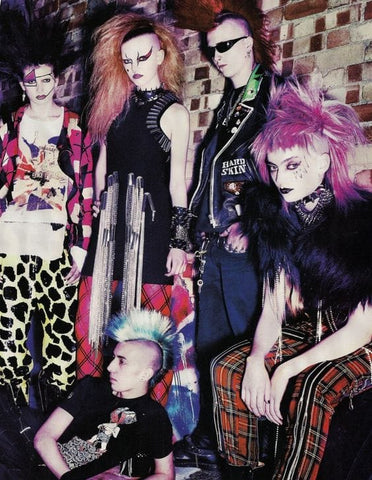
DIY Ethos
One of the defining characteristics of punk was its do-it-yourself (DIY) ethos. With little to no musical training, many punk musicians formed their own bands and learned to play on the fly. This approach encouraged creativity and self-expression, and it made punk accessible to anyone with a message and a desire to be heard.
Punk subcultures developed their own distinct fashion styles, from ripped clothing to colorful, unconventional haircuts. These styles were more than just a fashion statement; they were a visual manifestation of the rebellion and non-conformity that punk represented.
Social and Political Commentary
Punk music was also a platform for social and political commentary. Lyrics often tackled issues like unemployment, societal alienation, and political corruption. Songs like The Clash's "London Calling" and Dead Kennedys' "Holiday in Cambodia" were powerful critiques of the world around them, delivered with a sense of urgency that resonated with a disillusioned youth.
The birth of punk rock was a revolution in music and culture, a reaction to the excesses of the 1970s music industry and a cry for authenticity and rebellion. It introduced a DIY ethos, challenged the status quo, and provided a voice for the disenfranchised. While the heyday of punk may be in the past, its legacy endures in the music, fashion, and attitudes of today's counterculture. Punk rock reminds us that sometimes the most powerful music comes from the heart and the gut, not from a polished studio production.
Characteristics of Punk Music
Punk music is a raw and rebellious genre that emerged in the 1970s, quickly becoming a subculture that extended beyond just music. With its DIY ethos, loud and fast sound, and anti-establishment attitude, punk music has left an indelible mark on the music world and society at large. In this blog, we will explore the key characteristics that define punk music and the impact it has had on the music industry and culture.
Simplicity and Rawness
One of the defining characteristics of punk music is its simplicity and rawness. Punk songs are known for their short, straightforward structures, typically consisting of three chords and simple, repetitive lyrics. This minimalistic approach is designed to strip away the excess and deliver a punch of unadulterated emotion. Punk musicians intentionally eschew virtuosic displays, focusing on the immediate and visceral impact of their music.
Speed and Energy
Punk music is all about energy. It's fast-paced and played with intense vigor. Drummers pound out rapid, driving rhythms while guitarists strum with urgency. The high tempo of punk music is meant to convey a sense of urgency and restlessness. This speed and energy create a unique sonic intensity that has made punk music a thrilling experience for fans around the world.
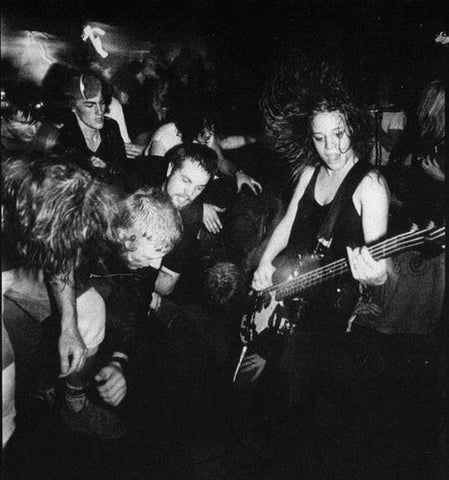
Rebellion and Anti-Establishment Attitude
Punk has always been associated with rebellion and an anti-establishment attitude. From its roots in the 1970s, punk musicians have used their music to challenge societal norms and question authority. Lyrics often focus on topics such as political corruption, social injustice, and personal disillusionment. This rebellion extends beyond the music itself, as punk culture promotes individualism and non-conformity in all aspects of life.
DIY (Do It Yourself) Ethos
The DIY ethos is a fundamental aspect of punk culture. This philosophy encourages individuals to create and promote their own music without relying on major record labels or commercialization. Many punk bands self-release their albums, design their own album covers, and book their own shows. This independent spirit empowers artists to maintain creative control and authenticity, which has inspired countless underground musicians and movements.
DIY Aesthetic
The DIY aesthetic goes beyond just the music. It's also reflected in the visual elements associated with punk. Punk album covers, posters, and flyers often feature crude and provocative artwork, adding to the raw and rebellious nature of the genre. The DIY aesthetic promotes self-expression and challenges traditional notions of what is considered "art."
Subgenres and Diversity
Punk music is not a monolithic genre. Over the years, it has spawned numerous subgenres, each with its unique characteristics. From the hardcore punk of the 1980s to the pop punk of the 1990s and beyond, punk has continued to evolve and diversify. This diversity showcases the genre's adaptability and enduring appeal to a wide range of listeners.
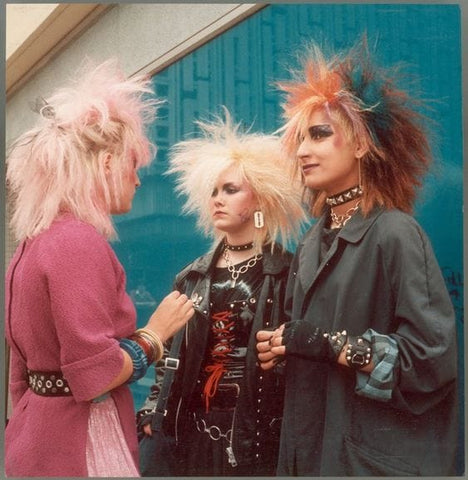
Influence and Legacy
Revolutionizing Music
Punk music had a profound impact on the music industry. Its minimalist, lo-fi approach to recording and production challenged the prevailing standards of technical virtuosity. The punk movement encouraged a new generation of musicians to focus on raw emotion and attitude rather than polished sound, leading to the emergence of various subgenres, including post-punk, new wave, and hardcore punk.
The punk spirit also played a crucial role in inspiring the independent music scene. It led to the growth of independent labels, where artists had greater creative control and autonomy over their work, helping underground bands gain exposure and create a genuine connection with their fan base.
Fashion and Style
Punk fashion became an iconic part of the subculture's identity. From leather jackets, ripped jeans, and band T-shirts to unconventional hairstyles and body piercings, punk fashion was a form of self-expression that rejected conformity and celebrated individuality. This DIY approach to fashion gave rise to countless alternative clothing brands and continues to influence street style and high fashion to this day.
Social and Political Influence
Punk music often carried a political and social message. Many punk songs addressed issues such as unemployment, poverty, racism, and political corruption. The Clash's "London Calling" and the Dead Kennedys' "Holiday in Cambodia" are just a couple of examples of punk songs that protested social injustices. This socially conscious aspect of punk inspired a generation of activists and became a powerful force for change.
Art and Aesthetics
Punk's aesthetic influence extends beyond music and fashion. It infiltrated the art world, giving rise to a form of visual art known as punk art or lowbrow art. Artists like Jamie Reid, who created iconic album covers for the Sex Pistols, and Raymond Pettibon, who designed artwork for Black Flag, incorporated punk sensibilities into their work. Punk's influence on art is characterized by its rebellious, provocative, and anti-establishment ethos.
The Global Reach of Punk
Punk music transcended borders and influenced artists worldwide. Punk scenes emerged in countries as diverse as Japan, Brazil, and the former Yugoslavia. Each of these scenes incorporated elements of their own culture and history, creating a unique fusion of punk and local influences. This global punk community reinforced the idea that punk is not just a style of music but a mindset that can be adapted to different contexts.
Classic Punk Bands
The Ramones
Let's kick things off with the band that's often considered the godfathers of punk rock – The Ramones. Hailing from Queens, New York, this group laid the foundation for punk with their simple, high-energy, and fast-paced songs. Classics like “Blitzkrieg Bop” and “I Wanna Be Sedated” are essential listening for anyone interested in punk's history.
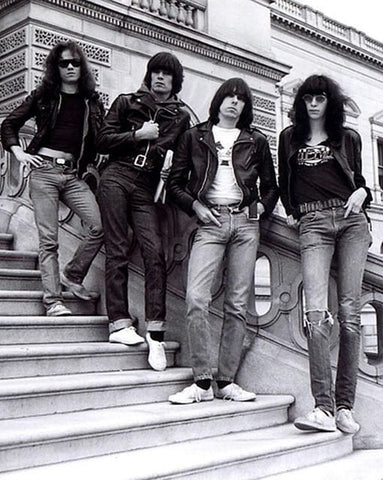
The Sex Pistols
No list of essential punk bands would be complete without the Sex Pistols. This iconic British band was at the forefront of the punk movement in the late 1970s, and their album "Never Mind the Bollocks, Here's the Sex Pistols" is a punk rock masterpiece. Songs like "Anarchy in the U.K." and "God Save the Queen" are punk anthems that still resonate today.
The Clash
The Clash brought a unique blend of punk, reggae, and rockabilly to the scene. Their politically charged lyrics and passionate performances made them a standout act. Albums like "London Calling" are not only punk classics but are also considered some of the greatest albums of all time.
Dead Kennedys
If you're looking for a punk band with a sharp social and political edge, Dead Kennedys fit the bill. Songs like "Holiday in Cambodia" and "California Über Alles" deliver biting satire and commentary while still keeping the energy level high.
Black Flag
Black Flag's aggressive, hardcore punk sound defined a subgenre of its own. Led by Greg Ginn and featuring various vocalists, including Henry Rollins, they created a raw, intense sound that laid the groundwork for many punk and hardcore bands that followed.
Bad Religion
Bad Religion is known for their thought-provoking and intellectual lyrics, often addressing social and political issues. Their melodic punk sound, with tracks like "21st Century (Digital Boy)" and "American Jesus," has made them a staple in the punk rock scene.
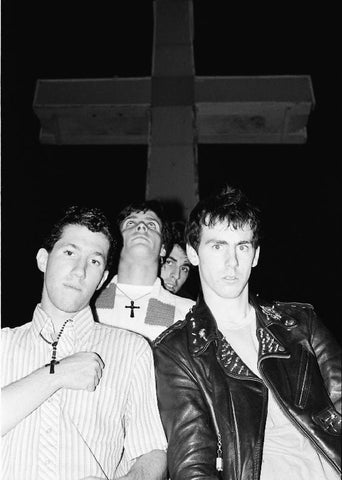
Rancid
Rancid emerged in the 1990s and played a pivotal role in the punk revival. Known for their punk rock anthems like "Time Bomb" and "Ruby Soho," they continue to influence and inspire a new generation of punk rockers.
Green Day
Green Day's breakthrough album, "Dookie," introduced punk rock to a broader audience in the mid-1990s. Their catchy, pop-infused punk songs, like "Basket Case" and "When I Come Around," helped revitalize the genre and brought it into the mainstream.
NOFX
NOFX is famous for their fast-paced, humorous, and irreverent punk rock. Their album "Punk in Drublic" is a classic and a great starting point for anyone looking to explore their discography.
Rise Against
Rise Against combines punk rock with a strong sense of social and political activism. Their passionate and anthemic songs, such as "Prayer of the Refugee" and "Savior," have made them one of the leading punk bands of the 21st century.
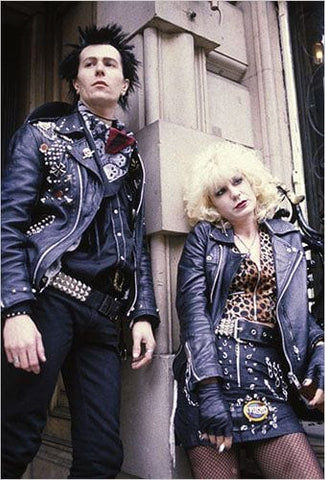
Punk music is a genre with a rich history and a vibrant present. These bands, among many others, have left an indelible mark on the world of music. Whether you prefer the classics or are more inclined towards contemporary punk, the rebellious spirit and energy of the genre are as alive as ever. So, grab your leather jacket and dive into the world of punk, where there's always something new and exciting to discover.

 TT138
TT138 WK-557NCM
WK-557NCM TW460
TW460 PT221
PT221
